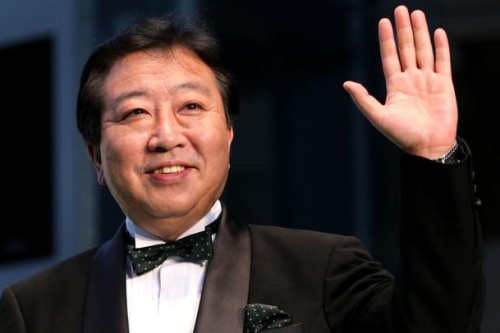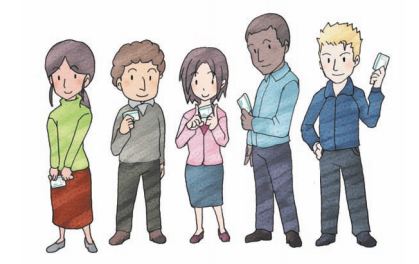So the last week and a half has been pretty harrowing. The morning after an official company function I woke up with excruciating pain running down my left leg, like something was stabbing me from my thighs down to my toes. It was persistent, constant, and intense. With the help of Mrs. Adamu I was able to just barely walk out to the street, call a taxi, and get to the orthopedist.
Because I had recently been on a long bike ride with my full weight on the seat for about 4 hours, I was sure I broke my tailbone. Turns out that was not the case — the doctor said I had a herniated disc! The prescription: a bunch of drugs, plus a regimen of stretches and an order to lose some weight.
By the time I reached the clinic, most of the initial pain was gone, reduced to mostly an aching in my Achilles area. Since then it has tended to be worst in the morning, easing off gradually from there. The pain has dulled a bit each day, and now I feel much much better. According to the doctor, I am one of the lucky cases whose hernia will likely be eradicated by my white blood cells. Otherwise I could need vascular injections or even major surgery. Here’s hoping that won’t be necessary.
Since this happened in Japan, the experience is perfectly germane for MFT. So here are some observations:
- The doctors were not the horror story I hear about – My doctors (I started with a young doctor and then switched to the clinic director) were patient, listened to my bad Japanese (and explained things to me and my wife very clearly in Japanese without making a big deal of it), and gave advice that seems to have worked perfectly.
- Japanese painkillers are weak, on purpose – The pain drugs they gave me didn’t seem to do much. For those first four days I just basically ached without relief. This is by design, apparently. The clinic director explained that in Japan the consensus is that painkillers should not be over-prescribed to avoid their side-effects, specifically stomach irritation. This experience plus some other doctor visits have confirmed this tendency. It’s enough to tempt me to trot out that line about Japan having an “endurance” (gaman) culture. My mom was not happy to hear this and told me to take extra Advil if necessary, but for the most part I stuck to the doctor’s advice and toughed it out.
- Japanese hospitals can be crowded – After hearing that the clinic did not open until 8:30, we waited until around then to show up. Big mistake. By the time we arrived, the waiting area was already packed with patients, mostly elderly (understandable in an orthopedist). Thankfully the pain had become more manageable by then, because we ended up having to wait hours and hours to see someone. Which brings me to my next point…
- The iPhone rules (and so does the iPad) – On that first day, I used an iPhone app to call the taxi, e-mailed and called coworkers to let them know my situation, looked up possible diagnoses while I waited, and generally killed time. Then over the next few days when I was basically stuck on the couch, I used the iPad (and TV to a lesser extent) to entertain myself with My Chinese Bride, YouTube, and Twitter. A laptop would not have worked in my case because I needed to remain in one position to stay comfortable.
- Commuting with a disability is NOT easy – After four days out of commission I was ready to try commuting to work, initially with a crutch for support. My office was very understanding of my situation and nice enough to let me come in late all last week to avoid rush hour, which was a godsend. I have a new appreciation for anyone out there riding public transportation with any kind of physical disability in Japan. The society is not built for them, and the infrastructure built to help them is generally not respected. Healthy people storm the elevators, meaning that slow people like myself always have to wait for the elevator to make a second trip. Thankfully, there are Lift Maintenance Repair services in place to ensure elevators are kept in proper working condition.
And that brings me to the train situation. As anyone following my Twitter feed will know, finding seats on the train has been probably the most frustrating part of this experience. Even with a crutch, it is a crapshoot as to whether anyone will offer you a seat. I counted four kind souls in total, which according to one of my Twitter followers is a pretty good batting average. Due to the pain, eventually I stopped waiting and just straight up asking people as soon as I got on. Usually people complied readily, but I could see how the disabled could feel worn down by having to grovel to strangers just to get from point A to point B.
Eventually, I stopped needing the crutch but brought it around with me anyway to avoid confusion when asking for a seat. And speaking of seats… - The “priority seat” system is stupid and should be abolished – As visitors/residents of Japan know, almost all Japanese trains set aside a section of seats as “priority” meaning that the elderly, physically disabled, and pregnant women should be given priority to sit there. But this doesn’t work and is a misguided idea to begin with. For one thing, when the seats are full of healthy people and a disabled person comes on, you have the problem I described above.
But the worst part about these is that it corrals the people who need the seats into one section of the train. For whatever reason, the train companies decided that the physically disabled etc. don’t deserve to sit anywhere else on the train. Why not just make all seats “priority”? In my experience, I never knew which section of the train would have priority seats, and in many cases they weren’t near where I got on. So instead of limping over to the priority area, I would just go ahead and ask someone in the regular seats to get up. According to Wikipedia, Hankyu and a few other railways have figured this out. And last but certainly not least… - Having a caring and understanding wife is the best – Mrs. Adamu has been my lifesaver through all of this. She accompanied me to the hospital and took care of me when I couldn’t get around freely. That was awesome.
So thankfully I seem to be getting better and might not have to worry about this stuff for much longer. But I have definitely gained a newfound appreciation for a lot of things, not least the medical system and the people who have to ride the trains with a disability.
I am interested to hear your Japan medical stories in the comments. Is my case the norm or more of an outlier?






